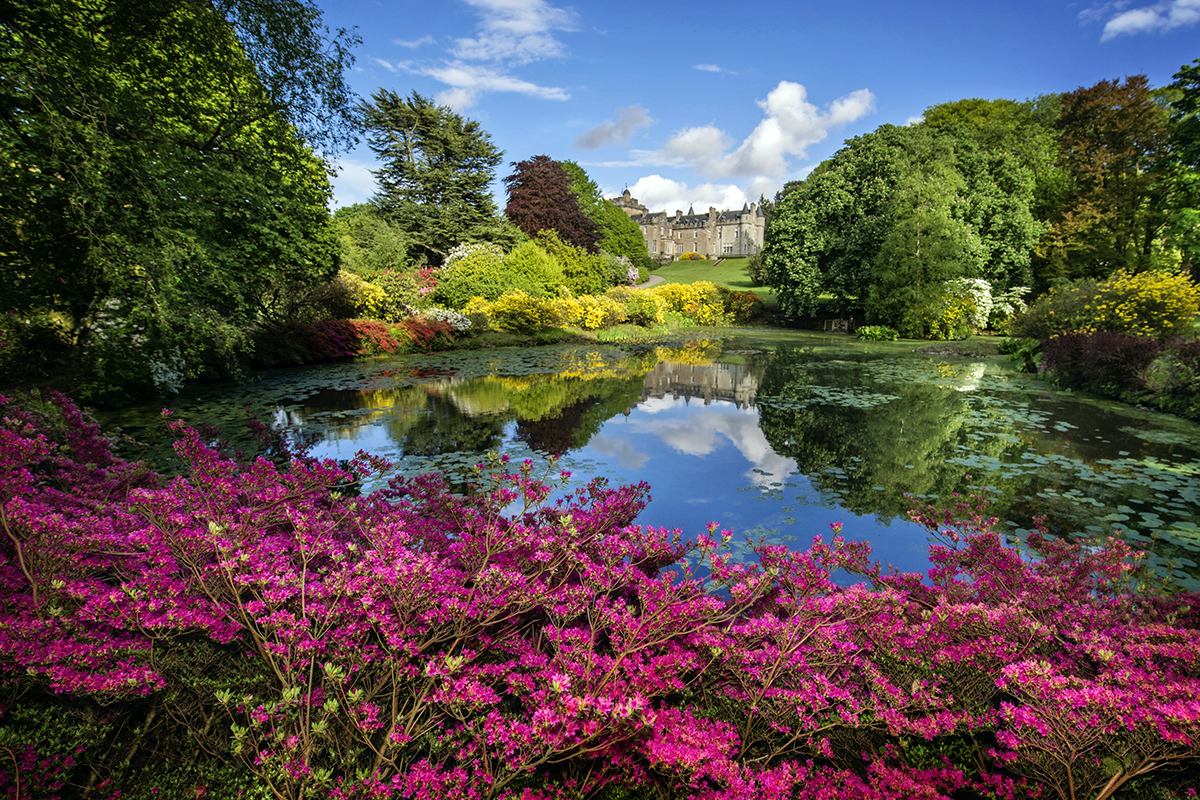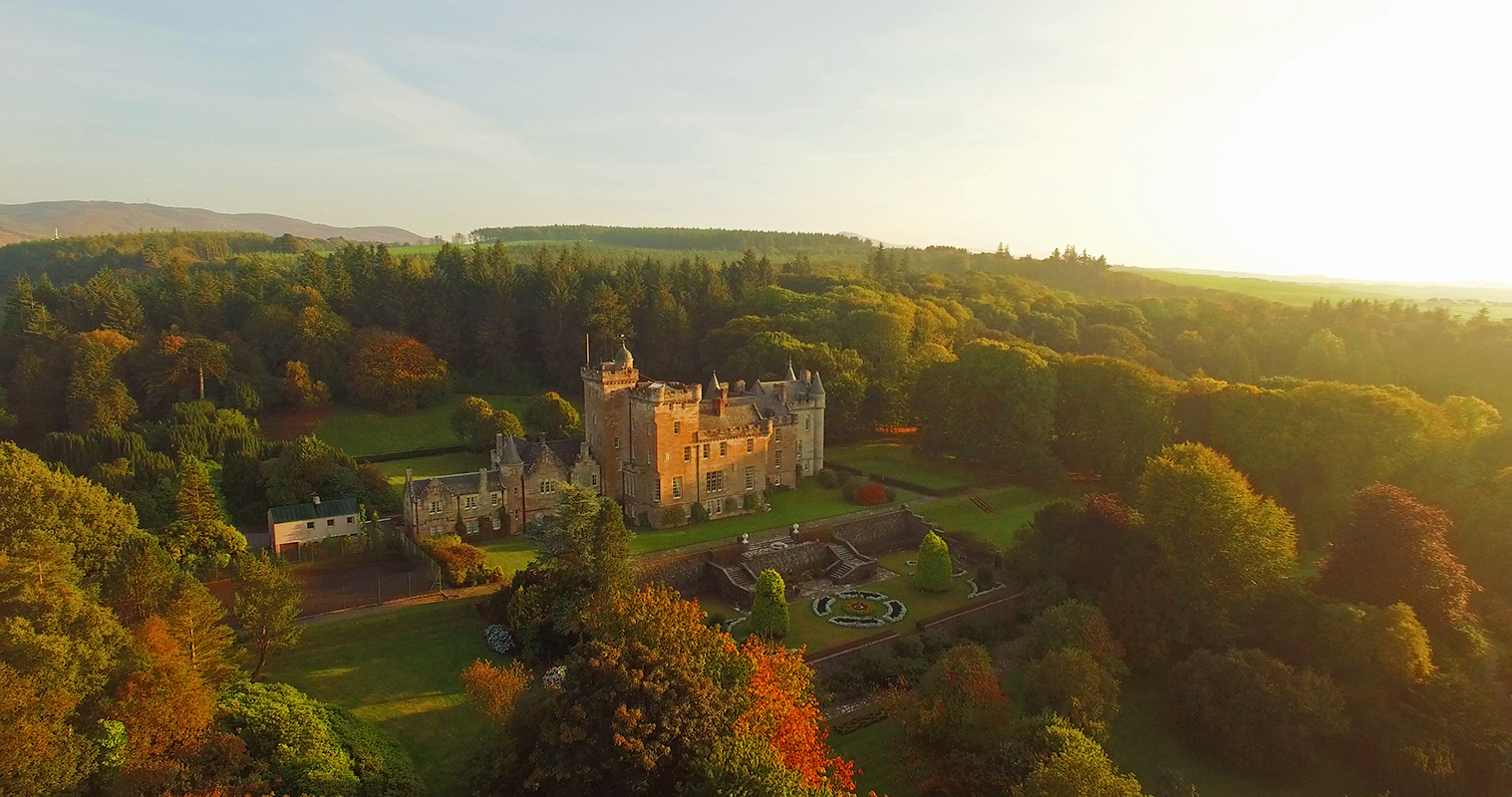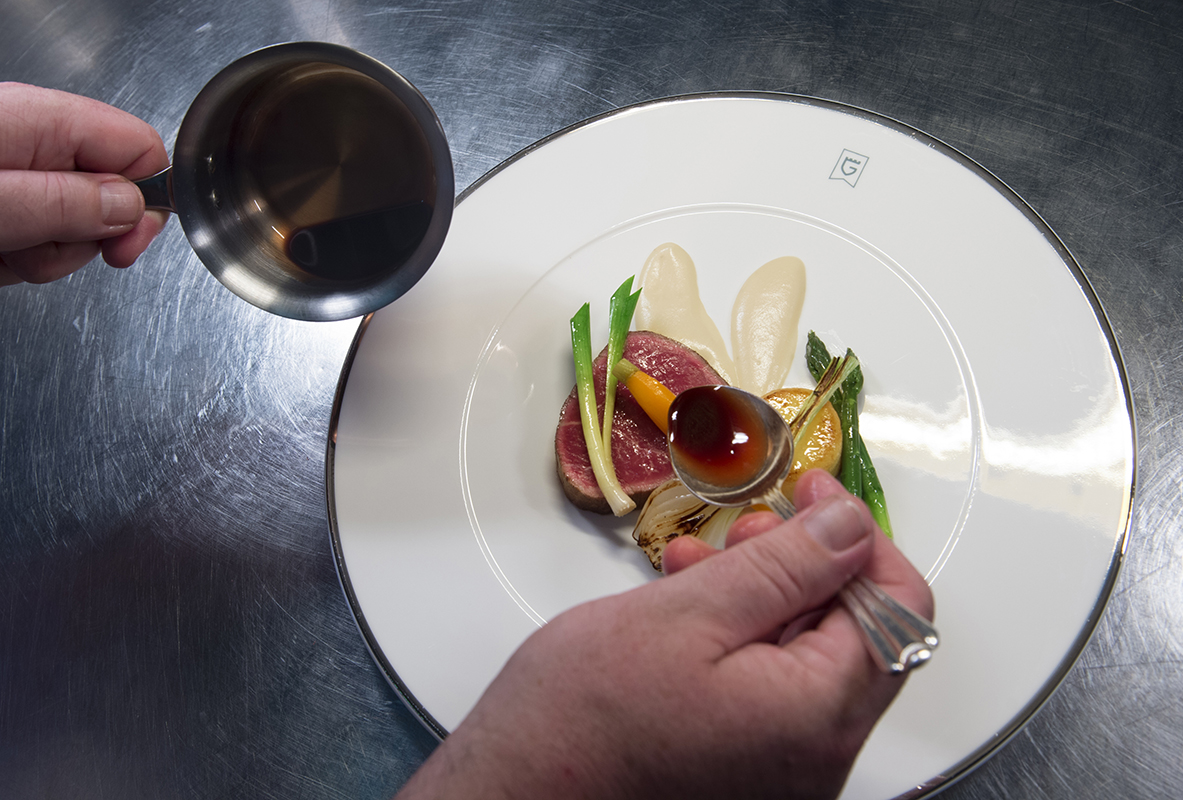This website uses cookies so that we can provide you with the best user experience possible. Cookie information is stored in your browser and performs functions such as recognising you when you return to our website and helping our team to understand which sections of the website you find most interesting and useful.
A castle estate turned luxury hotel, Glenapp offers a country escape on the Scottish coast
By Juliet Herd | 26 April 2019 | Travel
This relaxing Scottish coastal break will take you a world away from city living

You won't find any road signs for Glenapp Castle on Scotland's rugged Ayrshire coastline. This may at first seem like an oversight but is, in fact, quite deliberate. Perched at the top of a long winding drive with the wild tangle of an ancient glen below, it manages to retain an air of romance and mystery, reminiscent of the 19th century private baronial pile it once was before being converted into a luxury hotel 25 years ago.
"It's a wee forgotten corner of Scotland," says staff member Irene McIlwraith, who used to go hacking on the 36-acre estate when it was owned by the Earl of Inchcape. Adds managing director Jill Chalmers: "It's part of its charm, the fact that it's hidden. People still want to discover somewhere different and unique. It's got that 'home from home' feeling."
It certainly has – there's definitely a sense of entering someone's rather grand yet lived-in family home on arrival, with staff to greet you at the entrance and an assortment of wellies and waterproof jackets in the oak-panelled hallway for guests to borrow. Quite tellingly, there's no manned reception area as such – just an elegant writing desk with classic rotary dial telephone and a scattering of comfortable tartan-clad armchairs.
I've come here with my rather reluctant 20-something son, but even he is bowled over by the sense of history and spirit of adventure Glenapp instantly evokes, with its sandstone battlements and fairy-tale turrets and towers. It seems fitting that we've travelled from London to Glasgow on the Caledonian Sleeper train (which from 2 June will feature double beds suites), harking back to a gentler, more refined way of travel. We're greeted pre-rush hour at Glasgow Central station by our remarkably cheerful Glenapp driver Gary Thomson for the journey to the hotel. For those on a more pressing schedule, such as shooting and fishing parties, the castle boasts its own helicopter pad; alternatively, you can land your private jet at nearby Prestwick Airport.
Each of the 17 rooms and suites is individually designed to befit what is regarded as one of Scotland's most romantic castles: four-poster beds, swagged curtains, antique furniture, vintage rugs and historic portraits – all with the emphasis firmly on comfort, though. There's a fire burning in our spacious sea-view suite when we arrive and we're offered a pot of freshly brewed tea and homemade biscuits to revive us (my son gets worryingly accustomed to ordering tea during our stay).
After a cooked breakfast – and yes, smashed avocado on sourdough makes the menu! – we set off in our Glenapp wellies and jackets to explore the magical glen with its myriad woodland paths, meandering river and giant Sequoias and Cilician Firs, planted nearly 200 years ago by the Earl of Orkney. We continue the recce with a visit to the Italian garden, designed by horticultural heroine Gertrude Jekyll and architect Sir Robert Lorimer between 1902 and 1904, and the walled garden, with its 150ft Victorian glasshouse and flourishing beds of vegetables, herbs and fruit, grown for daily use by the castle's executive chef David Alexander. >>
Related: The Athenaeum's red brick Residences are shaking up how guests can experience Mayfair

It's no surprise that one of the highlights of any stay here is the food; the six-course dinner menu (there is also a three-course option) is dropped through your door every afternoon to get you drooling in anticipation. With sustainability a key focus, Scotsman Alexander makes a point of sourcing the finest local and west coast produce, from prime Scottish beef and Ballantrae lobster to Scottish berries and cheeses. On the two nights we dined there, the menu included spring mackerel with pickled beetroot, hand-dived Orkney scallops, breast of Goosnargh duck, fillet of Loch Duart salmon and vanilla and new season rhubarb pannacotta.
Alexander, who had previously worked in a Michelin-starred restaurant, was enticed to Glenapp by the new owner, London-based financier and philanthropist Paul Szkiler, who has succeeded in putting the hotel back on the map since buying it with his wife Poppy in 2015. The castle has had a bumpy history, to say the least. Designed by renowned Scottish architect David Bryce, it was built in 1870 for the industrialist James Hunter, later the Deputy Lord Lieutenant of Ayrshire, before passing in 1917 to James Lyle Mackay, chairman of P&O, who became the first Earl of Inchcape and whose family lived there until they sold it in 1982.
Sadly, the property gradually fell into disrepair, and it wasn't until 1994, when local hoteliers, the McMillan family, took ownership, that the castle's fortunes were revived, and over six years, restored to its former glory.
By the time Paul and his wife appeared on the scene as "mystery buyers" from the south, however, the estate was once again in need of some TLC, not to mention a savvy marketing plan. In less than four years, they've managed to double both revenue and occupancy. "All the ingredients were there," he tells us, ticking off the breath-taking scenery, remote location, friendly and dedicated staff and no end of sporting pursuits, from golf and curling to trout fishing and field sports. The neighbouring Glenapp Estate is still run by the Inchcape family, and guests from the castle can sign up for game shooting and deer stalking if they're so inclined. Ayrshire is also home to some of the world's finest golf courses, including Turnberry, now known as Trump Turnberry in a nod to its rather controversial American owner.
Something of an entrepreneurial evangelist, Paul, who runs socially motivated investment projects in Africa and Asia, has applied a similar business model to Glenapp, giving job and training opportunities to local people, many of whom come from the nearby fishing village of Ballantrae, once a popular holiday destination. "I'd much prefer to train people who don't think they can do it. Part of it is building confidence," explains Paul, who now employs 62 permanent staff. >>
Related: Live guilt-free in a luxury eco-friendly second home

One of his biggest investments has been the purchase of a charter boat for guests wishing to whizz around the south west coast, stopping off to climb the iconic Ailsa Craig island, famous for its curling-stone granite, visit the Ardbeg Whisky Distillery on the Isle of Islay or play golf on the Mull of Kintyre. The latest offering is a "sea safari" adventure, including a glamping experience complete with private chef – and the chance to spot an array of marine life, such as seals, porpoises, minke whales and possibly even a basking shark.
Eager to experience an outdoor activity ourselves, but having visited too early in the season to enjoy a boat trip (they run April-October), we head for Pinbraid Fishery near Girvan, to try our luck at fly fishing under the watchful eyes of brothers Bill and Jimmy Wood. Despite expert tuition – "as you come forward with the rod, open your hand and let the line flow down into the water" – we fail to attract even a nibble in the blustery conditions. "Aye, you couldn't have picked a worse day," consoles Bill.
Feeling the cold, we decide to try out Pebbles Spa, just a short drive away (transfers are provided by the castle) on the edge of the coastline. There's an infinity swimming pool and gym, and treatments using Thalgo and Decleor products. My half-hour illuminating radiance facial with neck and shoulder massage, was truly blissful and well worth the £50. Unsurprisingly, the castle plans to eventually build its own spa in the old stable block, so guests can just stroll across the garden in their gowns.
Before we leave Glenapp, we're given a sneak preview of one of its most exciting projects – a split-level three-bedroom penthouse apartment with a 12-seat dining room, sauna and treatment room, Aga-equipped kitchen plus private chef, as well as access to the turreted rooftop. As you take in the spectacular views over the Irish Sea, picking out the landmarks of the Isle of Arran, Ailsa Craig and County Antrim, Northern Ireland, you literally could not come closer to feeling like king of the castle.







